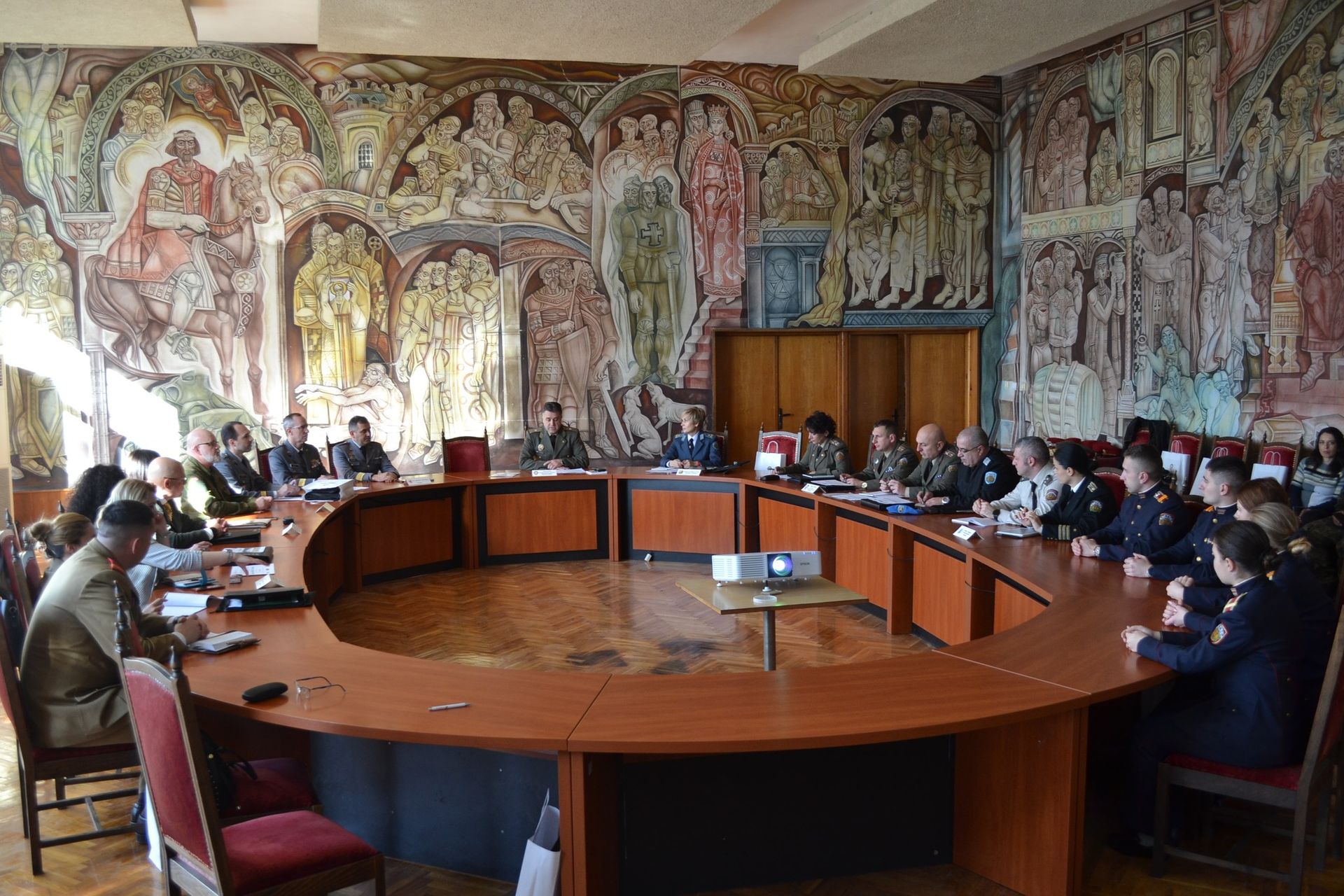Military Gender Studies Project
The Military Gender Studies (MGS) Project is a 30 month Strategic Partnership Project approved by the Erasmus+ Program and funded in 2020 under Key Action 203. The Portuguese Military Academy coordinates the MGS Project, and the Military Academies of Bulgaria (Vasil Levski National Military University), Italy (Università Degli Studi di Torino), and Romania (Academia Fortelor Terestre ‘Nicolae Balcescu’) constitute the strategic partners.
The main goal of the MGS Project is to increase the knowledge, and improve the practices, regarding gender perspectives in European Military Institutions. The different socio-political realities of the partner institutions are expected to contribute to a more diverse, and dynamic approach to our research on gender issues in European Military Institutions.
The MGS Project is set out to develop a Military Gender Studies (MGS) module, which will be incorporated in the curricular offer of the four partner institutions. The MGS module is expected to guide the Military Institutions in terms of practices and commitment to an equalitarian perspective on gender roles in their educational systems, bringing them closer to current European gender debates. The MGS module is thus intended to reinforce the interaction between research, policy, and practice in the partner institutions.
In the development of the MGS module, the partner institutions will develop a Military Gender Studies (MGS) Army Handbook, which is expected to be incorporated in the MGS curricular activities. This Handbook will be developed not only from existing gender theories, but also from data analysis collected from questionnaires/interviews conducted with cadets from the four partner institutions. These questionnaires/interviews will allow us to acknowledge the actual issues as identified by the cadets of military institutions in four distinct institutions. This representative sample is expected to offer a unique perspective on gender perspectives in European Military Institutions overall.
Upon the completion of the MGS Army Handbook, the MGS Project will then train two target groups: 16 students (4 from each Partner Institution) in MGS workshops, and 8 professionals (2 from each partner institution) who will later offer training on gender in the military. With this training system, we expect to promote social, civic, intercultural, and interdisciplinary competencies regarding gender equality in the military. Furthermore, the training system is also expected to establish the groundwork that will allow for a smooth integration of the Military Gender Studies module into the partner military academies' curricular offer.
At the time of the project's conclusion, all the partner institutions should have integrated the MGS module into their curricular offer. By including MGS in the syllabuses, the institutions will show a commitment to implement innovative practices regarding gender mainstreaming. As the armed forces are integrated in societies' systemic power structures, these practices are also expected to positively impact civilian society.
The dissemination of results of the MGS Project will occur in military contexts, and also in civilian academic circles. The MGS Project is committed to actively contribute to a more modern, dynamic, devoted, and professional environment inside Military Institutions, hopefully making a difference in the lives of military women and men, their institutions, and ultimately, European societies.
Contact us for more information

Co-Funded by the Erasmus+
Programme Erasmus Plus KA2 Cooperation for innovation and the exchange of good practices
Strategic Partnerships for higher Education
Project No: 2020-1-PT01-KA203-078544
Project title: Military Gender Studies
Starting date: December 2020. End date: June2023
© 2021 MGS - All rights reserved | Criação de site by Site.pt
The European Commission support for theproduction of this publication does not constitutean endorsement of the contents which reflects theviews only of the authors, and the Commissioncannot be held responsible for any use which maybe made of the information contained therein.







